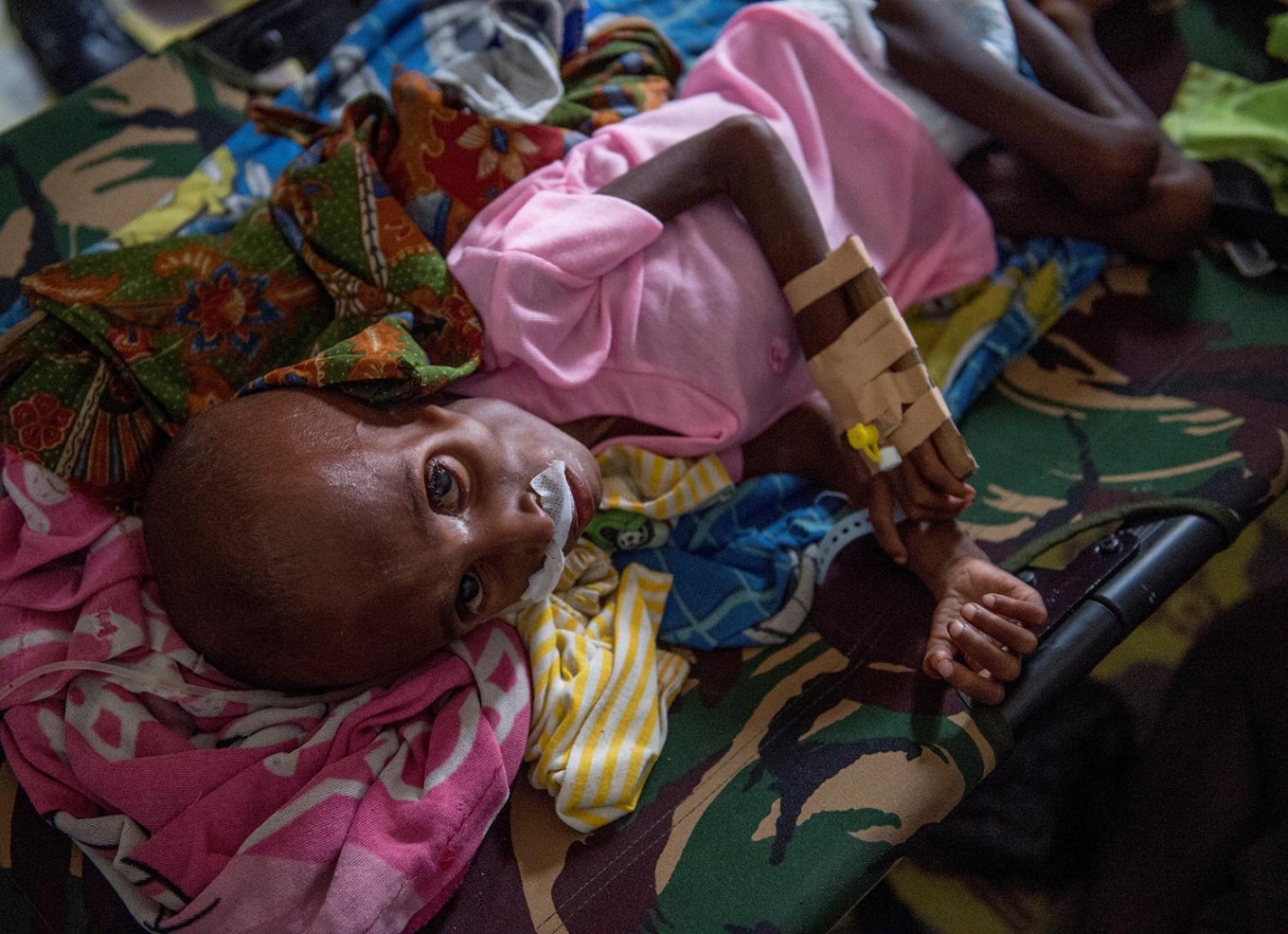Popular Reads
Top Results
Can't find what you're looking for?
View all search resultsPopular Reads
Top Results
Can't find what you're looking for?
View all search resultsSMERU-WFP study urges wider food, social policies to tackle TBM amid coronavirus
A nationwide study on food and nutrition security outlines the impacts of undernutrition, overnutrition and micronutrient deficiencies, as well as points to expanding the government's food and social protection policies as a solution to these issues and for tackling the compounded effects of the coronavirus crisis.
Change text size
Gift Premium Articles
to Anyone
L
ong before the COVID-19 outbreak emerged in Indonesia, the nation was facing the “triple burden of malnutrition” (TBM), the concurrent prevalence of undernutrition, overnutrition and micronutrient deficiencies. While stunting is a result of undernutrition, the problems of malnutrition in the nation go beyond this.
At a webinar on Oct. 14 titled “Beyond Stunting: Challenges to Improve Food Security and Nutrition in Indonesia”, the SMERU Research Institute urged the government to expand the focus of its policies on food security and nutrition to address not just stunting. The independent research and public policy institute particularly called for policy expansion that covered other aspects of malnutrition, specifically wasting, obesity, overweightness and micronutrient deficiencies.
The webinar aimed to share the results of a study commissioned by the World Food Programme (WFP) titled "Strategic Review of Food Security and Nutrition in Indonesia: 2019-2020 Update".
According to data published in the 2018 Basic Health Research, Indonesia is suffering the effects of the triple burden of malnutrition, with stunting prevalent in 30.8 percent of children under 5 and wasting in 10.2 percent of under-fives. In addition, anemia was prevalent in 48.9 percent of all pregnant women.
The COVID-19 epidemic has only worsened the situation, with the Health Ministry announcing on Wednesday that it had recorded 4,127 new cases in Indonesia, bringing the nation’s cumulative total to 344,749 confirmed cases. The ministry also recorded 129 additional COVID-19 deaths, which brought the nationwide toll to 12,156.
“COVID-19 is also [projected] to deteriorate the diet quality, especially among the poor and vulnerable. This is to be expected as a result of [the epidemic’s] negative impact on employment and income, since people are struggling to meet their basic needs, in particular food, and this will compromise the quality of their diets,” SMERU researcher Sirojuddin Arif said during the webinar.
Statistic Indonesia (BPS) reported that around 1.6 million people had fallen into poverty between September 2019 and March 2020, while the economy contracted 2.4 percent in the first quarter of 2020.
The government responded swiftly by scaling up its social protection programs, but the challenges that remain in the accuracy and completeness of its social welfare data could prevent the programs from making a maximum impact on improving the wellbeing of the poor.
The programs include food assistance for the poor, a direct cash assistance program called the Family Hope Program (PKH) and emergency food assistance for natural and nonnatural disasters. These programs, particularly the food assistance to the poor, were established in 1998-1999 as a response to the Asian Financial Crisis.
Both the food assistance program and the PKH have become more nutrition-sensitive in the decades since. The food assistance program, for instance, has developed from distributing subsidized rice to providing electronic cards or vouchers for buying a variety of foods. This allows the beneficiary households to potentially choose those foods that could increase the nutrient content in their dietary composition.
In 2017, the program expanded to include eggs in addition to rice among the foods that beneficiary households can purchase by e-cards. Furthermore, the e-cards or vouchers can be used to buy foods at selected kiosks (e-Warong), some of which sell the subsidized foods as a single, prepared package that prevents the beneficiary household from choosing individual food items.
WFP Indonesia country director Christa Räder, who appeared at the webinar, said that families’ general lack of knowledge and awareness about nutritious foods could prevent them from improving their food intake and allow malnutrition to affect many aspects of their lives.
“I believe that the best way to address stunting is not to feed the children [food] incentives or give [them] take-home rations. The best way is to give knowledge to the mothers and to give sufficient money to the mothers to make their choices. But I believe that money is not as important as knowledge,” said Räder.
“That knowledge is not out there yet. It can be given through the social protection system and health system, and that will empower and enable the mothers to feed the children properly,” she added.
Meanwhile, Iván Cossio Cortez, the Quality Assurance Group chief at the International Fund for Agricultural Development (IFAD), reminded all stakeholders of the importance of providing incentives to local farmers to produce healthy and nutritious foods to solve the issues of food security and dietary diversity in Indonesia.
“The first important step to have access to diverse and healthy food is by producing diverse and healthy food. Otherwise, the system won’t work,” he said.
As regards Indonesia’s food security, the SMERU report found that increased production in most food commodities, especially rice, had not caught up with the increase in consumption demand, and that the country’s dependence on imported rice to meet domestic demand had become a major concern during the COVID-19 crisis.
Meanwhile, BPS data showed that food production declined 10 percent year-on-year in the first quarter of 2020.
In analyzing these conditions, the institute urged the government to continue in its efforts to ensure that all poor and vulnerable households received social assistance to reduce the impact of COVID-19 on household food and nutrition security.
In addition, to prevent the increasing prevalence of wasting and stunting during the multifaceted COVID-19 crisis, the government needed to expand the distribution of complementary foods, such as fortified biscuits, to help children as well as pregnant and nursing women in poor and vulnerable households to meet their nutritional needs.










